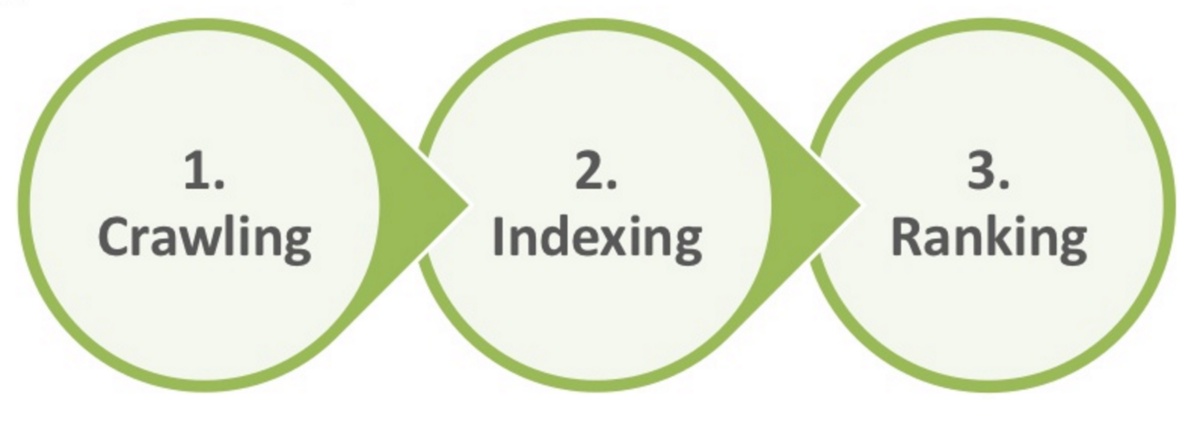In the expansive world of the internet, understanding the intricate mechanisms behind search engines is pivotal for anyone navigating the digital realm. This article aims to delve deeply into the core processes of crawling, indexing, and ranking, unraveling the mysteries that determine how a website is presented in search results. Join us on this comprehensive journey as we explore the fundamental principles that govern search engine operations.
The Fundamentals: Crawling and Indexing:
- Crawling:
- Crawling, the initial phase, is the process by which search engines discover and gather information from web pages.
- Web crawlers, also known as bots or spiders, systematically traverse the web, following links from one page to another.
- The efficiency of crawling directly impacts how comprehensively search engines index the vast content available online.
- Indexing:
- Indexing involves the organization and storage of the information collected during the crawling process.
- Search engines create an index, a massive database containing metadata about each web page.
- A well-structured index facilitates rapid and accurate retrieval of information when users initiate a search.
Understanding the Intricacies of Search Engine Indexing:
- Search Engine Index:
- The search engine index is analogous to an extensive library catalog, housing information about indexed pages.
- Each indexed page is assigned metadata, including keywords, content type, and relevance.
- The index is the backbone that enables search engines to match user queries with the most pertinent web pages.
- Search Engine Indexer:
- The search engine indexer, a critical algorithm or program, analyzes and organizes crawled data into the index.
- Advanced algorithms assess the relevance and importance of each page's content.
- Regular updates to the index ensure its accuracy and alignment with changes on websites.
Crawling vs. Indexing: Navigating the Symbiotic Relationship:
- Crawling vs. Indexing:
- Crawling is the act of exploration, the process of traversing the web and gathering information.
- Indexing is the subsequent phase, where the gathered data is cataloged and stored systematically.
- Both processes are symbiotic, working in tandem to enable search engines to provide relevant and up-to-date results to users.
The Crucial Role of Ranking:
- Search Engine Ranking:
- Search engine ranking is the culmination of the crawling and indexing processes, determining the order in which pages are displayed in search results.
- Algorithms evaluate numerous factors, including keyword relevance, content quality, and user experience.
- The overarching goal is to present users with the most valuable and reliable information.
In-Depth Exploration and Resources:
To gain a deeper understanding of these concepts and to find inspiration for optimizing your website, explore the following resources:
- Google Search Console: Google's official tool for webmasters, providing insights into crawling and indexing.
- Moz: A comprehensive resource for SEO learning, covering topics such as crawling, indexing, and ranking.
A profound understanding of how search engines operate in terms of crawling, indexing, and ranking is paramount for website optimization. For business owners and startups, investing in SEO is strategic, as an optimized website not only attracts more traffic but also generates leads and enhances brand visibility.
Brand Donut, a leading provider of professional SEO services, is dedicated to assisting you on this journey. Hire our experts to elevate your website's visibility, attract a local audience, and propel your business to new heights in the digital realm.
Get in touch with Brand Donut today and take the first step towards dominating the online landscape.
Brand Donut - Your Partner in SEO Success
Embark on the path to SEO success with Brand Donut. Enhance your website's visibility, attract more clients, and solidify your presence in the digital landscape. Invest in professional SEO services today for a brighter online future.
Website Crawling?
In the ever-evolving landscape of online businesses, having a strong online presence is paramount. One key aspect that plays a crucial role in this is website crawling. In this comprehensive guide, we will delve into the what, why, and how of website crawling, along with essential tips to optimize this process for better results.
What is Website Crawling?
Website crawling, also known as web crawling or spidering, is the process by which search engines systematically browse the web to index content. Search engine bots, commonly referred to as crawlers or spiders, visit web pages, follow links, and gather information to understand the content and structure of websites. This data is then used to index pages and provide relevant results when users search for information.
Why is Website Crawling Important for SEO?
Search Engine Optimization (SEO) is a key factor in ensuring your website ranks high in search engine results. Website crawling directly impacts SEO in the following ways:
- Indexing: Crawlers help search engines index the vast amount of content available online, making it accessible to users searching for relevant information.
- Freshness of Content: Regular crawling ensures that search engines have the latest information about your site, promoting the visibility of new content.
- Identifying Broken Links and Errors: Crawlers detect broken links, errors, and issues on your website, allowing you to address them promptly and maintain a smooth user experience.
- Improved Rankings: Optimizing your website for crawling can positively impact your search engine rankings, leading to increased visibility.


No comments yet